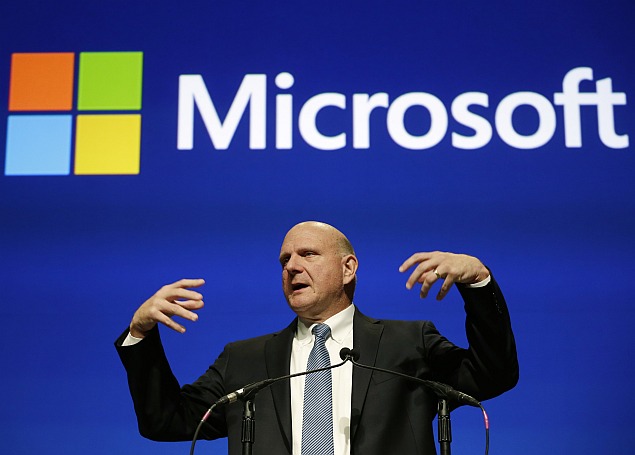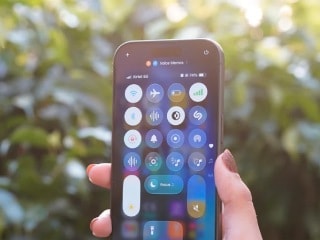- Home
- Mobiles
- Mobiles News
- Microsoft's Android royalty earnings under threat due to Linus Torvalds email
Microsoft's Android royalty earnings under threat due to Linus Torvalds email
By NDTV Correspondent | Updated: 9 December 2013 16:31 IST

Click Here to Add Gadgets360 As A Trusted Source

Advertisement
Microsoft's been enjoying some reportedly handsome royalty payments from Android device manufacturers like Samsung, LG, Acer and HTC, based on its patents. So far however, Google (through its Motorola Mobility subsidiary) has avoided paying a dime to Microsoft. A very recent ruling however, may just turn the tide back in Google's favour.
As noted by intellectual property expert Florian Mueller, a German court (the Federal Patent Court of Germany, BPatG) on Thursday said that elements distinguishing Microsoft's 'common name space for long and short filenames' FAT patent from prior art (which includes a Linus Torvalds email) did not satisfy the 'technicity' requirement under European patent law.
Mueller added that Microsoft will probably appeal this decision at the country's highest court, the Federal Court of Justice, BGH. According to Forbes' Tim Worstall, if upheld, the ruling has implications that are wider in reach than German jurisdiction, becoming applicable across the European Union. With the current unspoken aim to try and normalise patent rulings between Europe and the US, it could very well set the trend across the Atlantic as well.
This would mean that a large part of Microsoft's rather convenient royalty earnings from Android, at least those derived from the FAT patent, will cease to flow in to the Redmond giant's coffers - something Microsoft will obviously try to contest. According to an earlier report by analyst firm Nomura, Microsoft was estimated to be earning a cool $2 billion a year from Android royalty payments.
Microsoft officially doesn't break up the amount it receives in royalty payments in its records, but Worstall estimates based on the volume of sales of Android devices, it receives roughly the same amount in Android royalties as it does for its Windows Phone licences, if not more.
As noted by intellectual property expert Florian Mueller, a German court (the Federal Patent Court of Germany, BPatG) on Thursday said that elements distinguishing Microsoft's 'common name space for long and short filenames' FAT patent from prior art (which includes a Linus Torvalds email) did not satisfy the 'technicity' requirement under European patent law.
Mueller added that Microsoft will probably appeal this decision at the country's highest court, the Federal Court of Justice, BGH. According to Forbes' Tim Worstall, if upheld, the ruling has implications that are wider in reach than German jurisdiction, becoming applicable across the European Union. With the current unspoken aim to try and normalise patent rulings between Europe and the US, it could very well set the trend across the Atlantic as well.
This would mean that a large part of Microsoft's rather convenient royalty earnings from Android, at least those derived from the FAT patent, will cease to flow in to the Redmond giant's coffers - something Microsoft will obviously try to contest. According to an earlier report by analyst firm Nomura, Microsoft was estimated to be earning a cool $2 billion a year from Android royalty payments.
Microsoft officially doesn't break up the amount it receives in royalty payments in its records, but Worstall estimates based on the volume of sales of Android devices, it receives roughly the same amount in Android royalties as it does for its Windows Phone licences, if not more.
Comments
Get your daily dose of tech news, reviews, and insights, in under 80 characters on Gadgets 360 Turbo. Connect with fellow tech lovers on our Forum. Follow us on X, Facebook, WhatsApp, Threads and Google News for instant updates. Catch all the action on our YouTube channel.
Further reading:
Android, Android royalites, FAT, FAT patent, Microsoft, Samsung, Windows Phone, Windows Phone licence, file allocation table, patent litigation, royalty
Related Stories
Popular on Gadgets
- Samsung Galaxy Unpacked 2026
- iPhone 17 Pro Max
- ChatGPT
- iOS 26
- Laptop Under 50000
- Smartwatch Under 10000
- Apple Vision Pro
- Oneplus 12
- OnePlus Nord CE 3 Lite 5G
- iPhone 13
- Xiaomi 14 Pro
- Oppo Find N3
- Tecno Spark Go (2023)
- Realme V30
- Best Phones Under 25000
- Samsung Galaxy S24 Series
- Cryptocurrency
- iQoo 12
- Samsung Galaxy S24 Ultra
- Giottus
- Samsung Galaxy Z Flip 5
- Apple 'Scary Fast'
- Housefull 5
- GoPro Hero 12 Black Review
- Invincible Season 2
- JioGlass
- HD Ready TV
- Latest Mobile Phones
- Compare Phones
Latest Gadgets
- Lava Bold N2
- Vivo V60 Lite 4G
- Tecno Pova Curve 2 5G
- Lava Yuva Star 3
- Honor X6d
- OPPO K14x 5G
- Samsung Galaxy F70e 5G
- iQOO 15 Ultra
- Asus Vivobook 16 (M1605NAQ)
- Asus Vivobook 15 (2026)
- Brave Ark 2-in-1
- Black Shark Gaming Tablet
- boAt Chrome Iris
- HMD Watch P1
- Haier H5E Series
- Acerpure Nitro Z Series 100-inch QLED TV
- Asus ROG Ally
- Nintendo Switch Lite
- Haier 1.6 Ton 5 Star Inverter Split AC (HSU19G-MZAID5BN-INV)
- Haier 1.6 Ton 5 Star Inverter Split AC (HSU19G-MZAIM5BN-INV)
© Copyright Red Pixels Ventures Limited 2026. All rights reserved.







![[Partner Content] OPPO Reno15 Series: AI Portrait Camera, Popout and First Compact Reno](https://www.gadgets360.com/static/mobile/images/spacer.png)









